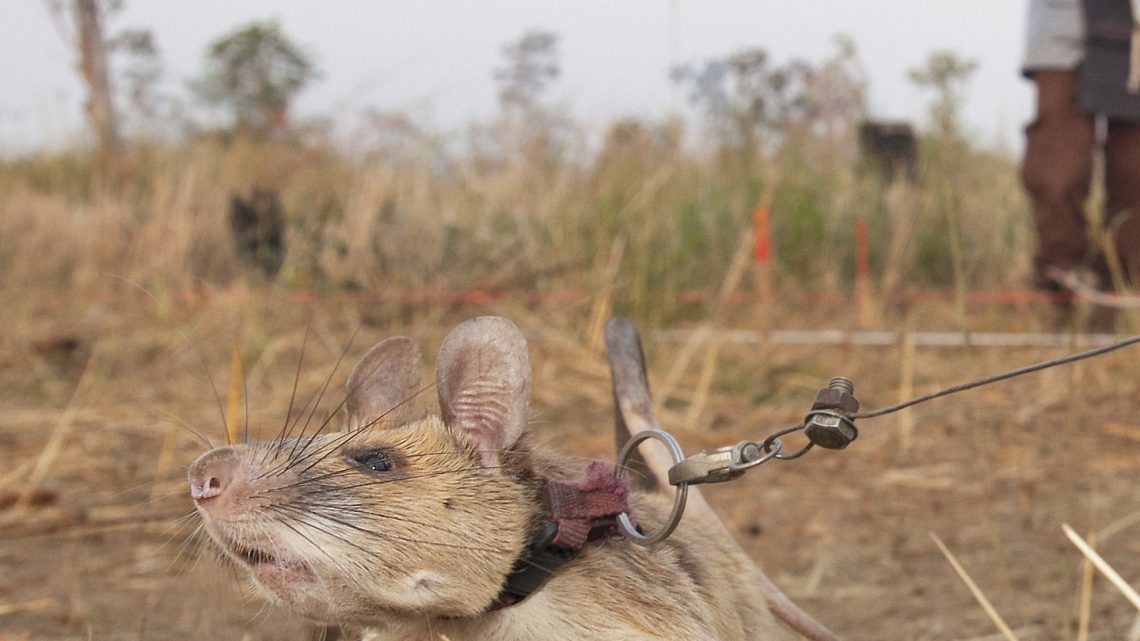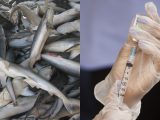
This ‘Hero Rat’ Is Saving Cambodia, One Landmine at a Time
September 29, 2020Rats are often associated with disease, sewage and trash, but the viral story of a brave rodent in Cambodia has changed mindsets overnight.
Born in Tanzania, Magawa is a 5-year-old African giant pouched rat who can detect deadly unexploded ordnance lying hidden in the jungles and open fields across Cambodia, the second most landmine-affected country after Afghanistan.
From the unexploded bombs dropped during the Vietnam war, to the landmines laid by the Khmer Rouge in the 1970s and in decades of civil conflict that followed, Cambodia has more than 25,000 mine amputees, the largest per capita in the world.
But in a span of four years, Magawa - which means courage - has located an impressive 39 active landmines and 28 unexploded munitions. He has helped clear more than 1.5 million square feet of land, the size of 20 football fields, saving tens of thousands from maiming and death in the process.
And last week he became the first rat ever to receive a gold medal award for “life-saving bravery and devotion to duty” in the field.
“Magawa’s life-changing work has had a direct impact on the lives of many men, women and children in Cambodia affected by landmines,” said Jan McLoughlin, director-general of the People’s Dispensary for Sick Animals (PDSA) British charity at a virtual ceremony on Friday, Sept. 25, honoring the rat’s incredible achievements.
“For every landmine or unexploded remnant Magawa finds, he eradicates the risk of death or serious injury. His dedication, skill and bravery are extraordinary examples and deserve the highest possible recognition.”
The PDSA’s gold medal, which has been given out since 2002, recognizes feats of bravery and acts of exceptional devotion by animals in civilian services. Past year recipients have traditionally been dogs.
But Magawa’s win, and a photo of him wearing a bite-sized gold medal, went viral online and shone a global spotlight on rats, as emerging research shows new levels of problem-solving, intelligence and empathy among the animals.
“Magawa’s story touches us and shows us that even the littlest of creatures can work towards peace,” said American anthropologist and researcher Darcie DeAngelo from the Institute for Genocide and Mass Atrocity Prevention at New York’s Binghamton University.
DeAngelo, who authored a post-doctoral thesis on landmine rats, spent time on the ground in Cambodia, observing rats like Magawa and their handlers at work, as well as vets, animal behavior experts and various training teams.
“Magawa’s story is also a reckoning for us in realizing that we are interdependent with our non-human companions on earth who lend a helping paw for a very manmade disaster,” she said.
She also noted that rats were less expensive than other options.
“Rats are not conventional aid animals and do not fit in with militarism,” DeAngelo said. “But they are extremely clever and adaptable and are now being increasingly used because they can detect and locate landmines more precisely than dogs and depending on local operations, cost less to train.”
Aided by his light body frame and powerful, highly-sensitive nose, the energetic little rat springs into action sniffing out buried bombs in Cambodian cities like Siem Reap as well as remote border provinces like Preah Vihear and Oddar Meanchey.
Once he’s picked up the scent of TNT, a highly-reactive chemical component commonly found in dynamite and other explosives - Magawa kicks into high alert, scratching the surrounding ground to alert his team of skilled handlers, who then proceed to identify potential traps and cordon off the area to begin the demining process.
And when he isn’t hard at work locating deadly landmines, the rat enjoys some downtime running on his playwheel and snacking on sweet treats like bananas, peanuts and watermelon.
“Magawa is a very quick and decisive worker but he is also the first one to take a nap during a break,” said his handler Malen from the renowned Belgian non-profit organization APOPO, which selects and trains African giant pouched rats to detect landmines and even diseases like tuberculosis.
Doctors and staff from the Animal-Mama Veterinary Hospital in the capital Phnom Penh also celebrated their star patient’s win. “Like all hero rats from APOPO, Magawa is treated by our vets every fortnight,” the hospital’s owner Yulia Khouri told VICE News.
“He is a very special, friendly little guy, full of personality and spunk - He can be quite cheeky at times with a headstrong attitude during check-ups, it’s very funny and endearing. He always gives us a run for our money and doesn’t like being told what to do!”
Handler Malen and Magawa share a strong and unique bond, one that transcends beyond the field of work. “Magawa has saved the lives of so many people and he is very special to me,” Malen said of his friend.

